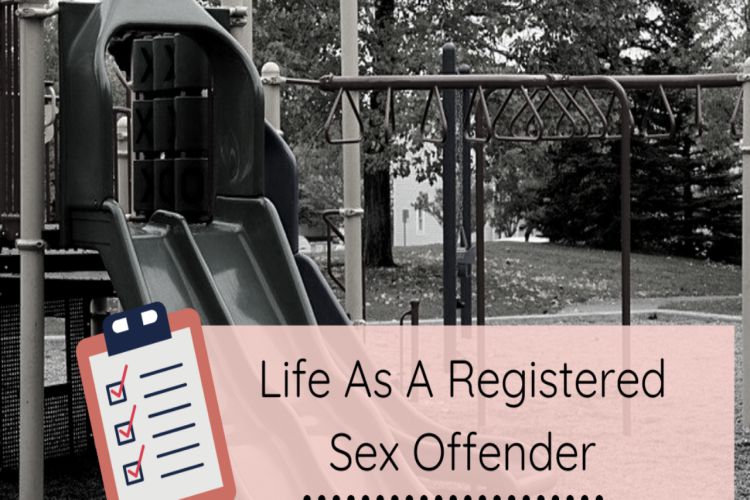 Registering as a sex offender in Colorado is a life-altering event that can have profound and lasting consequences. From the legal requirements to the social stigma and practical challenges, the repercussions of being listed on the state’s sex offender registry are far-reaching. In this blog post, we’ll explore how individuals end up on the Colorado Sex Offender Registry, the effects of registration, the duration of registration requirements, the consequences of non-compliance, and the possibility of having penalties reduced.
Registering as a sex offender in Colorado is a life-altering event that can have profound and lasting consequences. From the legal requirements to the social stigma and practical challenges, the repercussions of being listed on the state’s sex offender registry are far-reaching. In this blog post, we’ll explore how individuals end up on the Colorado Sex Offender Registry, the effects of registration, the duration of registration requirements, the consequences of non-compliance, and the possibility of having penalties reduced.
How Do You End Up On the Colorado Sex Offender Registry?
Individuals can end up on the Colorado Sex Offender Registry through various means, primarily involving convictions for sexual offenses. Colorado law, CRS 16-22-102, mandates that individuals convicted of certain sex crimes must register, including but not limited to:
- Sexual assault
- Unlawful sexual contact
- Sexual exploitation of children
- Soliciting a child for prostitution
- Internet exploitation of a child
- Invasion of privacy for sexual gratification
- Incest
The length of time you must register varies based on the severity of the offense. Additionally, individuals adjudicated as delinquent for certain sexual offenses as juveniles may also be required to register.
Effects of Registering as a Sex Offender
Registering as a sex offender in Colorado can have profound effects on various aspects of life, including:
- Housing: Finding suitable housing can be challenging for registered sex offenders due to residency restrictions imposed by state and local laws. Many towns have buffer zones of 1000 feet prohibiting registered sex offenders from residing near schools, parks, or other areas where children congregate, limiting housing options.
- Employment: Registered sex offenders often face significant barriers to employment due to stigma and discrimination. Many employers conduct background checks and may be reluctant to hire individuals listed on the sex offender registry, limiting career opportunities and financial stability.
- Social Stigma: Being listed on the sex offender registry can result in social ostracization and isolation. Registered sex offenders may face judgment, hostility, and harassment from their communities, leading to feelings of shame, alienation, and psychological distress.
- Community Notification: In Colorado, law enforcement agencies have the discretion to notify the public about the presence of registered sex offenders in their communities. Community notification may involve disseminating information through online sex offender registries, public notices, or community meetings, further exacerbating stigma and potentially jeopardizing safety.
How Long Do I Have To Be Registered As A Sex Offender?
The duration of registration requirements for sex offenders in Colorado varies depending on the nature of the offense and the individual’s risk level. Generally, individuals convicted of more serious sex offenses who are deemed a sexually violent predator, such as sexual assault on a child, are required to register for life. For class 1,2, and 3 felonies, offenders must register for 20 years. For class 4,5, and 6 felonies, individuals must register for 10 years after their sentence. Class 1 misdemeanors require 5 years of registration.
What If I Don’t Register Myself?
Failure to register as a sex offender in Colorado is a serious offense that can result in criminal penalties. Under Colorado law, failure to register as a sex offender is a felony offense punishable by imprisonment and fines. For a misdemeanor conviction, failing to register is a class 1 misdemeanor, resulting in up to 2 years in prison and $5000 in fines. Failing to register for a felony charge is a class 6 felony and is punishable by up to a year and a half in prison and $100,000 in fines. Additionally, non-compliance with registration requirements can lead to further legal consequences, including probation violations and additional charges.
Can My Penalties Be Reduced?
In some cases, individuals listed on the Colorado Sex Offender Registry may explore avenues for reducing the duration or severity of their penalties. Legal options for penalty reduction vary depending on factors such as the nature of the offense, the individual’s compliance with registration requirements, and changes in circumstances over time. For example, individuals may petition the court for early termination of registration requirements if they can demonstrate rehabilitation, compliance with treatment programs, and a low risk of reoffending. Additionally, individuals may seek legal assistance from a Colorado defense attorney to explore options for expungement or sealing of their criminal records, which can alleviate some of the collateral consequences associated with sex offender registration. However, navigating the process of penalty reduction can be complex, and individuals are encouraged to seek guidance from experienced legal professionals familiar with sex offender laws in Colorado.




